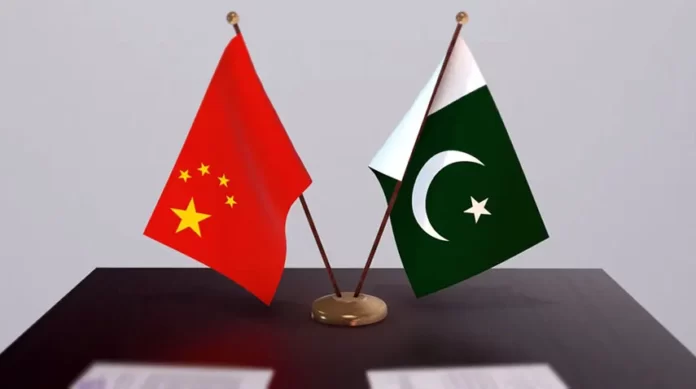China, Pakistan Sign 11 Cooperation Agreements to Launch CPEC Phase II
New accords focus on agricultural innovation, digital education, and vocational training to strengthen bilateral collaboration under CPEC Phase II.
BEIJING: China and Pakistan have inked 11 major cooperation agreements in education and husbandry, marking the sanctioned launch of the alternate phase of the China- Pakistan Economic Corridor( CPEC). The agreements, inked during the China- Pakistan Conference on Collaborative Innovation in Modern Agriculture and Industry- Education Integration, represent a significant corner in the growing cooperation between the two countries.
Also Read: Pakistan, Malaysia Sign Six Major Agreements to Boost Bilateral Cooperation
The signing form was attended by elderly officers from Shandong fiefdom and witnessed by a high- position Pakistani delegation led by Science Counselor Muhammad Khan, Secretary Nadir Chatta, and Vice Chancellor Prof. Dr. Muhammad Kamran. Representatives from the Technical Education and Vocational Training Authority( TEVTA) and MNS University of Agriculture Multan were also present. The event was eased by UNI Services International Pvt. Ltd. and ITMC Technology China, with the support of the Chinese Business Council in Pakistan.
The 11 agreements concentrate on crucial sectors pivotal to Pakistan’s socio- profitable growth, including agrarian invention, digital education, food safety, and vocational training. The collaboration aims to promote sustainable agrarian practices, enhance Pakistan’s mortal resource capabilities, and strengthen its agrarian and educational structure through Chinese moxie and technology.
Among the corner enterprise blazoned was the establishment of a Four- Party Overseas Training Base for agrarian technology transfer, designed to grease the exchange of ultramodern husbandry ways, perfection husbandry, and smart husbandry results between both countries. This action is anticipated to help Pakistani growers and experimenters gain access to China’s advanced agrarian technologies, perfecting productivity and effectiveness across the sector.
Another significant design is the creation of a Center of Excellence for Food Safety and Inspection, which will concentrate on developing high norms for food quality, hygiene, and import instrument. This center aims to strengthen Pakistan’s food import competitiveness and insure compliance with transnational safety norms.
The Oasis Stella Workshop Project, also part of the agreements, will promote the development of Pakistan’s dairy and buffalo assiduity. By using Chinese moxie in beast parentage, dairy technology, and sustainable beast operation, the design is anticipated to enhance milk product, ameliorate quality, and support pastoral husbandry through better beast operation practices.
In the education sector, Weifang Engineering Vocational College inked cooperation agreements with the Islamia University of Bahawalpur and MNS University of Agriculture Multan. These hookups aim to integrate Chinese vocational training models into Pakistan’s education system, fastening on skill development, class modernization, and pupil exchange programs.
also, trilateral agreements between ITMC, UNI Services, and Pakistani universities will foster digital education and agrarian technology integration. The collaboration will promotee-learning platforms, digital classrooms, and the use of artificial intelligence( AI) in agrarian exploration and training, icing that Pakistani scholars and professionals gain exposure to slice- edge global education systems.
Max Ma, CEO of UNI Services International, described the signing of these agreements as “ a transformative step in Pakistan- China educational and agrarian cooperation. ” He emphasized that these collaborations will make long- term capacity in Pakistan by incorporating invention, education, and practical training.
also, ITMC Managing Director Wang Peng stressed the significance of transferring China’s advanced vocational education models to Pakistan, stating that the cooperation will empower Pakistani youth with ultramodern specialized chops and practical knowledge essential for artificial growth.
elderly Shandong parochial officers praised the action as a major achievement under CPEC Phase II, noting that the agreements will contribute to agrarian modernization, technological advancement, and mortal resource development in Pakistan. They added that the cooperation underscores China’s continued commitment to Pakistan’s profitable progress and reflects the heightening strategic fellowship between the two nations.
With the formal launch of CPEC Phase II through these 11 agreements, both countries aim to move beyond structure development toward invention- driven, knowledge- grounded cooperation. The new phase is set to concentrate on husbandry, education, technology, and assiduity — crucial pillars that will drive Pakistan’s sustainable growth and consolidate the major ties between Islamabad and Beijing.


Comments are closed, but trackbacks and pingbacks are open.